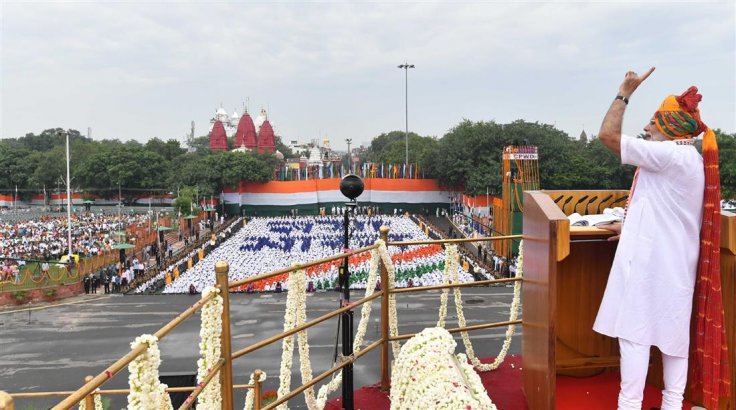
In his first speech after winning the election for his second term, Indian Prime Minister Narendra Modi proclaimed that "...we have to win Sabka Wishwas (everyone's trust)."
What will be required to win that trust is establishing a true state of interdependence that can be achieved by creating a country in which there is a shared understanding of the value of each citizen and a reliance on one another to eliminate discrimination, hostility, and prejudice and to provide equality and opportunity for all. Each citizen must be an active participant in shaping the future of India. All citizens must be equal partners in India's inclusive economic mobility and in India's shared prosperity.
Independence Day is the perfect day to highlight the importance of and advance the concept of interdependence. This can be accomplished by promoting the need for a unified India on this national day.
The need for doing this is critical. Unfortunately, in the period since the Prime Minister called for winning "trust" in his speech, some Indians have engaged in actions destroying it.
Sadly, the heinous crimes at the beginning of Modi's second term are not new. There were several lynchings and numerous attacks on Muslims during his first term.
Modi did not speak out vigorously then but he must do so now to demonstrate the essential leadership that will be required to create a state of interdependence.
There are other serious conditions that must be addressed as well. To name just a few: sexual violence and subjugation of females continues; the caste system still exists and, the problematic conditions of those in the weaker sections persist.
By speaking out, the Prime Minister Modi can bring the country together to confront the matters that are hardening India's democratic arteries. He can not do that alone, though. He will need to win support from across the country and the citizenry.
As I said in an article last year, the first step should be to "find our spiritual common ground." That step can be initiated by recognizing that spirit is the invisible force that brings us together regardless of our caste, race, religion, region or political predisposition.
The goal in discovering that common ground should be to create one nation under God. That nation would be an interdependent one and its God would be ecumenical and non-denominational. Its God would be welcoming to all.
- As one nation, India would celebrate and embrace the richness of religious diversity
- As one nation, India would be inclusive and accepting unity over division and hope over fear
- As one nation, India would elevate citizenship above anger and mindless partisanship and bring people together to pursue the common good
- As one nation, India would be the place known for sharing and caring as opposed to blaming and shaming
- As one nation, India would emphasize building bridges instead of constructing boundaries and barriers
- As one nation, India would ensure that all its people are literate and equipped with the skills to succeed in the 21st century.
- As one nation, India would extend life lines instead of drawing battle lines
- As one nation, India would be a land of big dreams, small treasures, brave people, kind deeds, and tender mercies
- As one nation, India would ensure the importance of freedom of press
- As one nation, India would be a role model and example for other democracies to emulate
Everyone must play a role in establishing India as one nation. Each citizen should engage in small acts of kindness by reaching out to those less fortunate and to the downtrodden by extending a helping hand.
Some people can make special contributions. Religious leaders should promote interfaith dialogue. They should bring people together the followers of different persuasions for meaningful conversations. They should promote a dialogue of understanding and a shared sense of community with other faiths. They should populate the fact that attack on one faith is attack on all faiths.
Political leaders should promote a framework of unity and civility. Civic and community leaders should promote collaboration in problem-solving. They should toil together to plant the seeds for doing good deeds.
There is no better day on which to resume our journey than the Independence Day. There is no better way to make that journey than to chart a course to interdependence. By reaching that destination, India will establish itself as the beacon of hope for democracy worldwide. By realizing that potential, India will bring a new dawn for democracy in this 21st century.
(Frank F. Islam is an Entrepreneur, Civic Leader, and Thought leader based in Washington DC. The views expressed here are personal)









